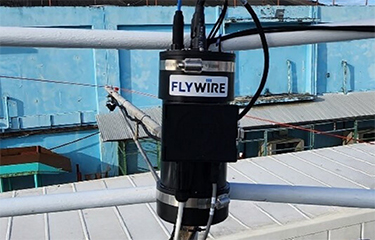Tri Marine advances electronic monitoring initiative for Atlantic tuna vessels

Tri Marine has added FlyWire electronic monitoring systems onboard all its longline tuna vessels operating in the Atlantic Ocean.
The Bellevue, Washington, U.S.A.-based tuna company, which was acquired by Bolton Group in 2019,said in a 2 August press release it also plans to increase its observer coverage rate in its Atlantic albacore longline fishery.
Tri Marine formed a multi-year partnership with FlyWire in 2022, with the goal of creating an electronic monitoring program to track its fleet and gather data on its vessel performance.
The data collected by the FlyWire systems installed onboard Tri Marine vessels will be used to improve the company’s operations, and to comply with data reporting mandates from various national governments and international governing bodies, including regional fisheries management organizations. The data can help Tri Marine to reduce its fuel consumption and to improve its performance on social audits, according to FlyWire CEO Jacob Isaac-Lowry. Additionally, FlyWire’s system allows Tri Marine to participate in international data-collection projects, such as those being conducted by The Nature Conservancy and the International Seafood Sustainability Foundation, Isaac-Lowry said.
“FlyWire is proud to collaborate with the innovative team at Tri Marine working to improve seafood sustainability,” Isaac-Lowry said in a press release. “To succeed, we believe we must facilitate informed, balanced management strategies while serving the needs of our customer’s fishing businesses. We put these values to work in everything we do.”
Isaac-Lowry said the partnership – due to continue for at least another 12 months – has reaped benefits to FlyWire as well – the cost of the hardware has been reduced by 80 percent over the course of the two-year collaboration with Tri Marine, Isaac-Lowry said.
Tri Marine Global Sustainability Program Manager Christa M. Svensson said the partnership is the latest advancement in the company’s work on improving electronic monitoring of its global tuna-fishing fleet.
“It is amazing to see what’s possible with a different approach to [electronic monitoring],” she said. “Because our team is focused on fishermen, we are succeeding in driving down costs, increasing value and managing data risk.”
Tri Marine conducted its first electronic monitoring pilot project in 2014, when it installed electronic monitoring on its distant-water tuna longliners in the Western and Central Pacific Ocean, in partnership with the Secretariate of the Pacific Community, the Solomon Islands Ministry of Fisheries and Marine Resources, and The Nature Conservancy.
“Ever since, Tri Marine continues to advance innovative solutions in an ongoing effort to develop electronic monitoring beyond an enforcement-only transparency tool,” Svensson said.
Tri Marine has embraced a number of other initiatives in recent years, including ISO sustainability certifications, Marine Stewardship Council certification, and membership in the International Seafood Sustainability Foundation.
Photo courtesy of Tri Marine






Share